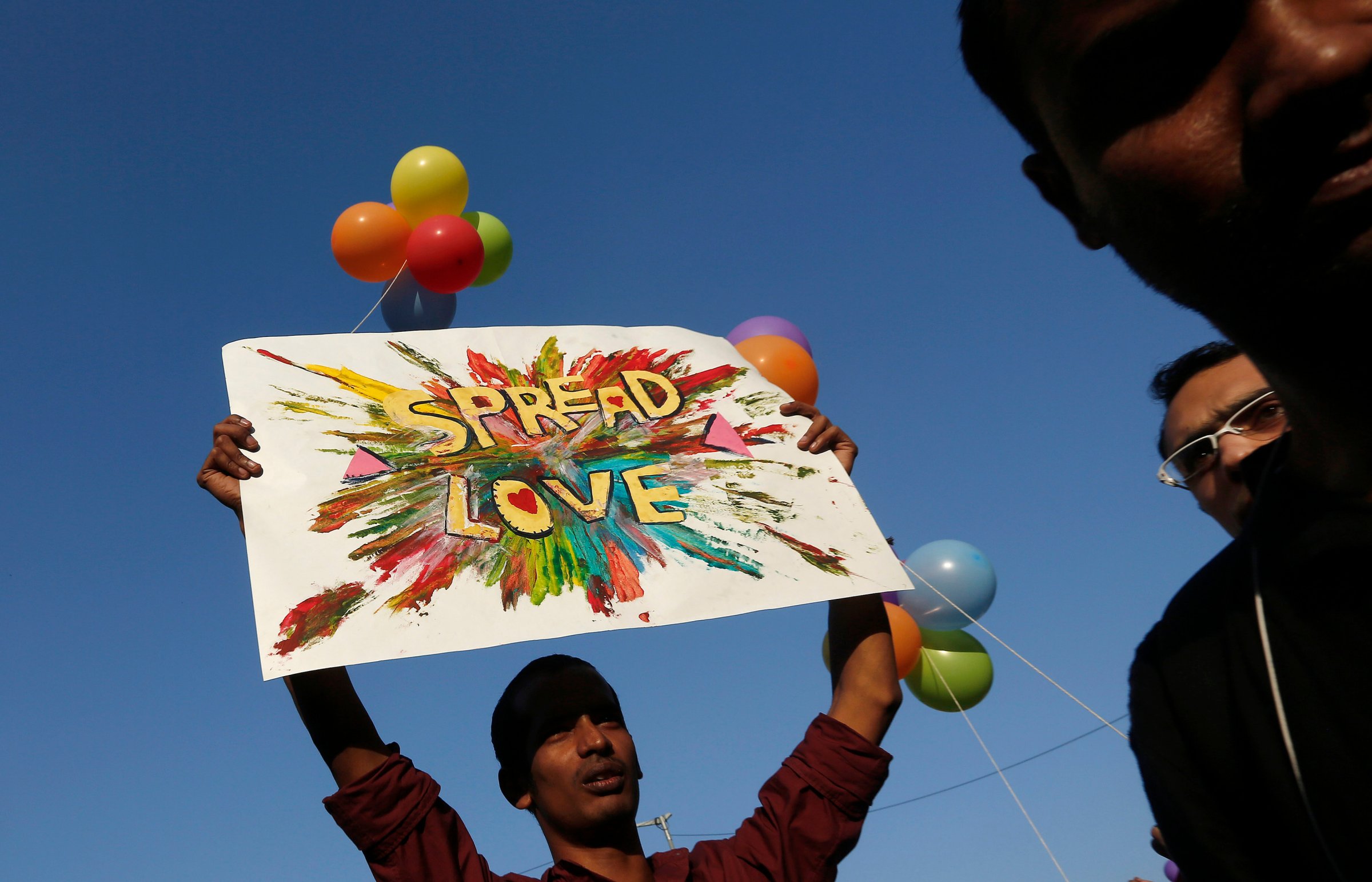
On the face of it, the matrimonial ad placed by 57-year-old Mumbai resident Padma Iyer in an Indian tabloid on Tuesday followed the usual form of such notices in a country where many marriages are still arranged by parents: seeking a suitable partner for her son, she listed his age, height and occupation in the ad in the city’s Mid-Day newspaper.
But instead of a girl, Iyer sought a suitable boy for her gay son — a 25-to-50 year old “well-placed, animal-loving GROOM,” according to the ad, the first such notice in a country where homosexuality is illegal.
The ad soon went viral on Facebook and Twitter, generating accolades for Iyer for challenging a widespread social taboo against homosexuality.
Writing on the website of a local news channel, her son — the prospective groom, Harish — said that the ad only made it into Mid-Day after being rejected by other newspapers, including the country’s leading English-language daily, The Times of India, which reportedly turned down the ad on legal grounds.
“I think it’s absolutely normal for any mother to wish for her son to settle down. My mother is no different. She’s 57, and fears I’ll be alone after she’s gone,” Harish, who is a leading LGBT rights activist, wrote, saying he had already received six responses to the ad.
“Last week, she asked me a question any mom would ask her 36-year-old son: ‘Are you dating someone? Are you fond of someone?’ And when my answer was in the negative, my mom did what any Indian mother would do — she decided to place an ad in a newspaper.”
India’s Supreme Court recriminalized homosexuality in late 2013, when it upheld a British colonial-era law that punishes “carnal intercourse against the order of nature with any man, woman or animal” with up to 10 years in prison. The judgement was widely criticized by human-rights groups, with the then U.N. human-rights chief Navi Pillay saying the ruling by India’s top court represented a “significant step backwards” for the country. “The Supreme Court of India has a long and proud history of defending and expanding protection of human rights. This decision is a regrettable departure from that tradition,” Pillay added.
More Must-Reads from TIME
- Donald Trump Is TIME's 2024 Person of the Year
- Why We Chose Trump as Person of the Year
- Is Intermittent Fasting Good or Bad for You?
- The 100 Must-Read Books of 2024
- The 20 Best Christmas TV Episodes
- Column: If Optimism Feels Ridiculous Now, Try Hope
- The Future of Climate Action Is Trade Policy
- Merle Bombardieri Is Helping People Make the Baby Decision
Contact us at letters@time.com